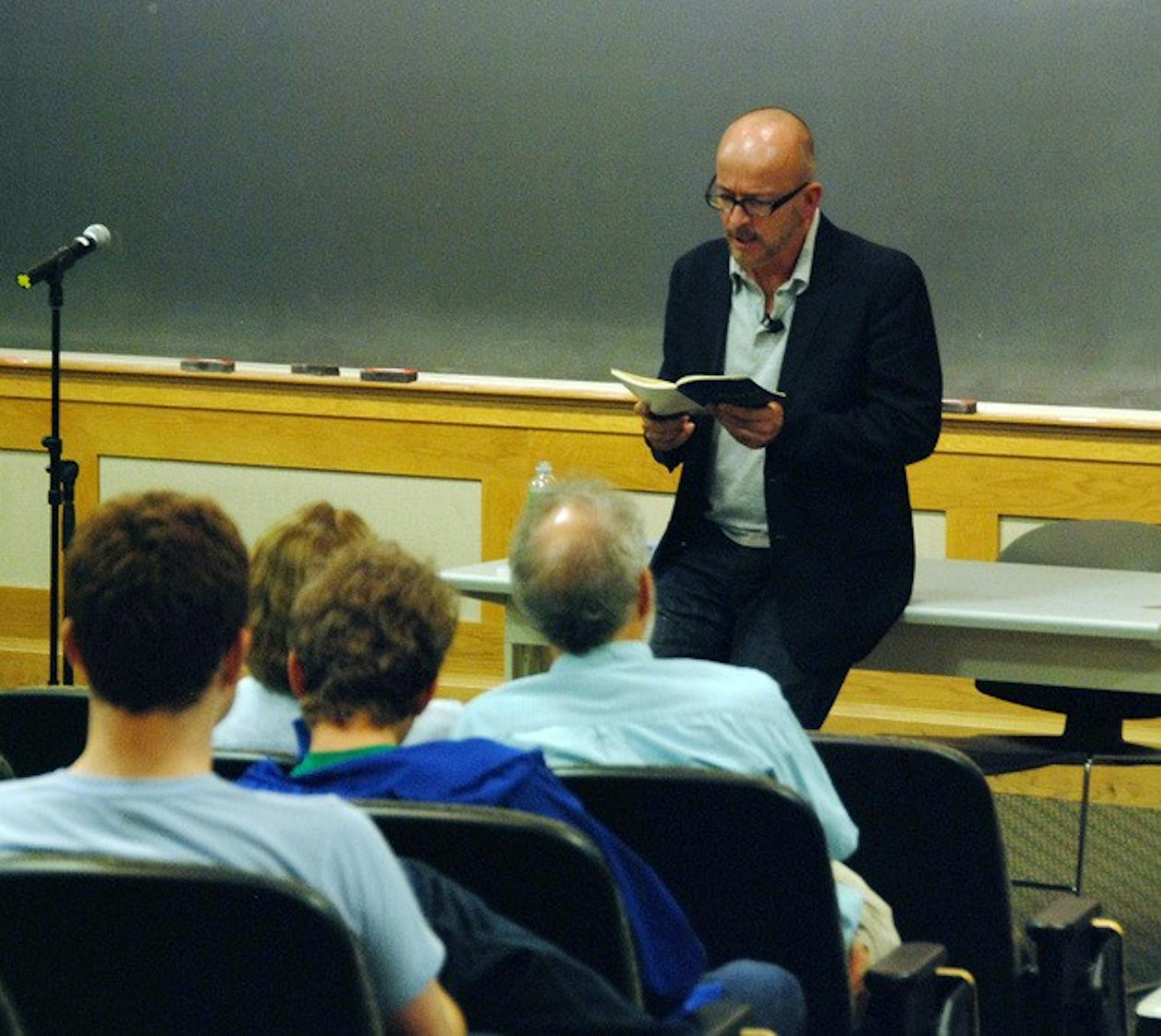At the talk, Doty read excerpts from his works about his life in the artistic community of Provincetown, Mass., one of the epicenters of the American AIDS epidemic at its height in the early 1990s. Doty lost his partner, Wally Roberts, in 1994 as well as many other close friends in Provincetown.
Doty said that he found that his imagination allowed him to cope with all the loss that was encompassing his life during those years.
"Imagination was made vigorous by the hard pressures of reality," Doty said. "Nothing that I can write can be connotative of those years of loss. Imagination has no choice but to respond."
He said that his words could never truly capture his despair as so many he loved died around him.
"In the early '90s we could not hope," Doty said. "It's not natural for human beings to live without hope."
Amid all of this hopelessness, Doty said he felt the only thing he could do was write. The AIDS epidemic became the inspiration for many of his poems and his memoir, "Heaven's Coast."
Doty said that he did not write about the AIDS epidemic to overcome his grief, but rather to capture the sense of infinite loss he was feeling at the time.
"I didn't want to be consoled," Doty said. "I didn't want a book that would make me feel better about death. I wanted to write a book that would reflect my anger, uncertainty and feeling of rupture with the world."
Doty said his writing was an attempt to encapsulate what he was feeling and that he never knew what he was going to write before he actually wrote it. For him, the writing process always began with an image and then moved to an attempt to find the right words to encapsulate the image he was seeing.
"My initial motivation was to put into form what I felt," Doty said. "When you are in a state of grief you feel boundless. You feel like there is no shape or place to begin. Writing becomes a way to cope."
Doty said one of the greatest challenges he faced in writing non-fiction was how to capture his experience without exploiting those about whom he was writing.
He said the biggest challenge came when he was writing the memoir of his childhood, "Firebird." His father was upset about how he was portrayed by his son, but Doty felt that he had no choice but to describe what he felt.
"I felt as though I had ownership of my experience," Doty said, "and I wouldn't resign that to protect him."
Doty said that putting his thoughts on paper was a therapeutic way for him to deal with his grief. Once he started editing his words, however, he said he realized they were not for him alone, but for him to share with others.
"Sometimes that is the only distance I can get -- that standing back to try and shape words as powerfully and effectively as I can," he said. "That little bit of distance can be a life-saving thing."
Amita Kulkarni contributed to this article.




